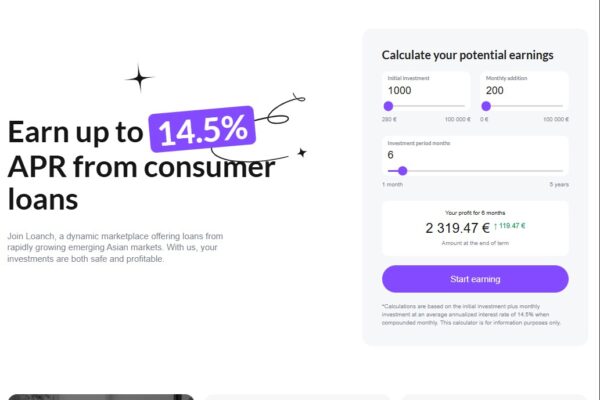XSharesMarketing.com Scam Review -Masterclass Deceptive Broker
Introduction: A Too-Good Opportunity
It started, as many modern scams do, with a friendly message and a promise that sounded almost reasonable.
A colleague mentioned XSharesMarketing.com, calling it “the next big trading platform” — something about advanced market analytics, automated investment strategies, and a team of “seasoned experts” who had supposedly worked at top-tier brokerages.
On paper, it seemed harmless enough. The website looked polished, the testimonials were glowing, and the tone of the marketing felt reassuringly professional.
But beneath that sleek surface lay a textbook case of digital financial fraud — one that has quietly drained the savings of countless unsuspecting investors across multiple countries.
This is the story of XSharesMarketing.com, a website built not to trade your money, but to take it.
First Impressions: A Facade of Professionalism
When you first visit XSharesMarketing.com, it feels convincing.
The homepage has the kind of modern design we associate with legitimate trading firms — clean typography, corporate blues, graphs that move just enough to look real, and phrases like “Empowering Investors Globally” and “Smart Strategies for a Smarter Future.”
There’s a login portal, an “About Us” section full of corporate buzzwords, and even a page that references “regulatory compliance” and “risk management.”
If you didn’t know what to look for, you’d think this was just another up-and-coming fintech company.
Except — none of it checks out.
The “company registration number” listed on the site leads nowhere. The so-called “certifications” are forged images copied from other legitimate brokerages.
And the “executive team”? Completely fictional — their profile photos are stolen stock images that also appear on unrelated websites and template designs.
It’s a facade built for persuasion, not transparency.
The Hook: Marketing That Speaks to Aspiration
Scammers behind XSharesMarketing.com understand psychology.
Their marketing doesn’t target the greedy — it targets the hopeful.
The website’s messaging revolves around empowerment, inclusion, and the idea that “anyone can build wealth” with the right tools.
They blend modern fintech buzzwords — AI trading, smart portfolios, passive income — with the comforting tone of financial mentorship.
One of the platform’s most persuasive tactics is personalized outreach.
Victims often receive emails or messages inviting them to “test-drive” the platform with a low entry deposit, usually around $250–$300.
It sounds like a trial. It feels low-risk.
And that’s the brilliance of the con — it doesn’t need to look like a scam right away. It just needs to look like a small opportunity worth exploring.
The Setup: Smooth Talkers and Sophisticated Dashboards
Once you register, XSharesMarketing.com rolls out the red carpet.
You’re assigned an “account manager” who introduces themselves via phone or WhatsApp — friendly, professional, and brimming with confidence. They use industry lingo with ease, talking about “market entry points,” “portfolio optimization,” and “leveraged strategies.”
Their goal? To make you feel like you’re in capable hands.
You’re given access to a custom trading dashboard, complete with live charts, fluctuating balances, and what looks like real-time trading data. It’s interactive, flashy, and — most importantly — fake.
The platform’s back-end isn’t connected to any real exchanges. It’s a simulation designed to make you believe your money is being invested. The numbers move just enough to suggest progress, but they’re preprogrammed — a digital illusion.
And for a while, it works.
Investors see “profits” accumulating on-screen and start to feel good about their decision. That’s when the persuasion deepens.
The Pressure Builds: Deposits, Upgrades, and False Success
Within days, your “advisor” reaches out again.
They congratulate you on your apparent profits — “You’ve already made 20% in your first week!” — and suggest that now is the perfect time to upgrade to a “premium portfolio” for even higher returns.
It’s the upsell phase, and it’s where the real money flows in.
The tone shifts subtly from friendly to urgent. You might hear lines like:
“Our institutional investors are moving into this same strategy — you don’t want to miss it.”
“You’ve already proven you can make gains; now it’s time to scale up.”
Some users are even shown fake “contract” PDFs with supposed investment tiers: Silver, Gold, Platinum — each requiring a larger deposit.
Others are told that they’ve “qualified for professional trader status” and must invest at least $5,000 to maintain their account benefits.
Every new deposit feeds the scam’s real engine: untraceable fund collection.
The Reality Check: When Withdrawals Fail
For many victims, the truth only begins to surface when they try to withdraw funds.
At first, small withdrawals may be approved — often just a few hundred dollars — to build credibility.
But once larger requests are made, the curtain drops.
Suddenly, the once-responsive support team disappears behind bureaucratic excuses:
-
“Your account is undergoing verification.”
-
“Funds are temporarily held for compliance.”
-
“There’s a processing fee that must be paid first.”
And then, silence.
Emails go unanswered, phone lines are deactivated, and login credentials mysteriously stop working.
It’s a familiar playbook in the world of online investment scams: pay small, fake legitimacy, block large withdrawals, vanish.
Patterns Behind the Scam
Digging into the digital trail of XSharesMarketing.com reveals familiar fingerprints — the same infrastructure used by a network of fraudulent “investment firms” operating under different names.
Domain registration data, shared IP addresses, and cloned website code point to a single operation that recycles its scam formula every few months.
Common aliases tied to this network include:
-
FXPrimeInvest,
-
GlobalTradeCore,
-
EliteWealthFX, and
-
CapitalVistaTrade.
Each site uses identical structures: professional branding, vague licensing claims, staged dashboards, and fake support teams.
When one site begins attracting too many complaints, the group simply rebrands and relaunches.
XSharesMarketing.com is just the latest costume in a long-running performance of deception.
The Psychology of Trust
What makes scams like XSharesMarketing.com so effective isn’t the technology — it’s the emotional architecture.
They understand how to manufacture trust through design, tone, and timing:
-
The site looks legitimate.
-
The communication feels personal.
-
The early results seem real.
By the time suspicion sets in, the victim is emotionally and financially invested.
That’s when scammers weaponize the investor’s own hope — the desperate belief that maybe, just maybe, the profits on the screen will still turn out to be true.
It’s not greed they exploit — it’s faith.
Why It Works: The Power of Performance
The genius of scams like XSharesMarketing.com lies in how they mimic legitimacy so convincingly that even cautious investors can be deceived.
They don’t look like old-school “get rich quick” schemes. Instead, they look like fintech startups, complete with UX polish, corporate-style writing, and professional branding.
Every detail — from the customer portal to the phony “support tickets” — is crafted to project reliability.
But underneath that surface, there’s no trading infrastructure, no regulatory framework, and no real financial operation at all.
It’s theater. And the investors are the audience — paying for the show with their savings.
The Aftermath: Digital Ghosts and Vanished Funds
As with many such operations, XSharesMarketing.com eventually begins to crack under its own deception.
Complaints start surfacing on investor forums. The “support” email stops responding.
Then the domain itself begins to falter — first loading errors, then total disappearance.
By that point, the operators are already on to the next brand, setting up a new site with a new name, ready to start the cycle again.
For those who lost money, there’s little solace. The company never really existed — just a collection of digital pages designed to look like one.
A Lesson in Modern Fraud
The story of XSharesMarketing.com is more than a single case of deceit.
It’s part of a larger trend — a reminder that scams have evolved with sophistication.
They no longer come in the form of clumsy emails or obvious pyramid schemes.
They come dressed in credibility, powered by data, design, and psychological precision.
These scams don’t just steal money; they steal belief in online opportunity.
And that’s perhaps their greatest damage of all.
Conclusion: When Trust Becomes a Tool
If there’s one thing the XSharesMarketing.com saga teaches, it’s that trust — the very currency of finance — can be forged.
The operators of this fake brokerage understood that most investors don’t fall for promises of instant wealth. Instead, they built something more dangerous: a believable lie.
They sold hope, competence, and the dream of security — and in return, they took silence, loss, and regret.
The site may vanish, but the story remains the same.
Behind every fake trading platform lies the same playbook: build confidence, fabricate success, and disappear.
In a digital age where appearance equals authority, the greatest risk isn’t missing an opportunity — it’s believing in the wrong one.
Report XSharesMarketing.com Scam and Recover Your Funds
If you have lost money to XSharesMarketing.com, it’s important to take action immediately. Report the scam to Jayen-consulting.com, a trusted platform that assists victims in recovering their stolen funds. The sooner you act, the better your chances of reclaiming your money and holding these fraudsters accountable.
Scam brokers like XSharesMarketing.com continue to target unsuspecting investors. Stay informed, avoid unregulated platforms, and report scams to protect yourself and others from financial fraud.
Stay smart. Stay safe






